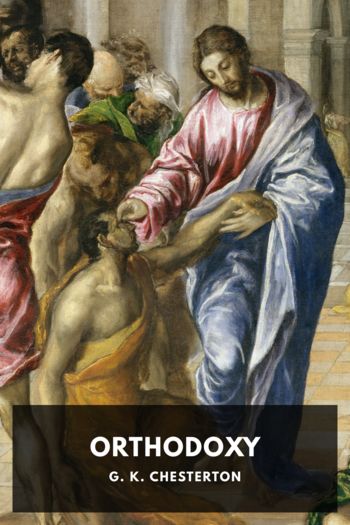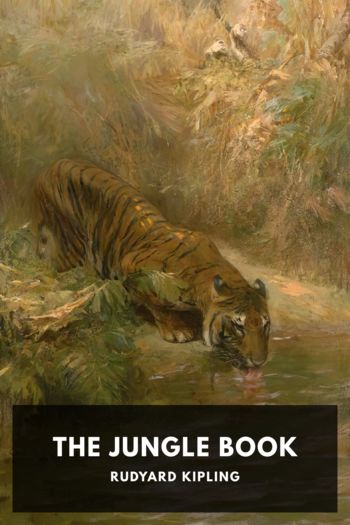Heretics - G. K. Chesterton (novels to improve english TXT) 📗

- Author: G. K. Chesterton
Book online «Heretics - G. K. Chesterton (novels to improve english TXT) 📗». Author G. K. Chesterton
We are undemocratic, then, in our religion, as is proved by our efforts to “raise” the poor. We are undemocratic in our government, as is proved by our innocent attempt to govern them well. But above all we are undemocratic in our literature, as is proved by the torrent of novels about the poor and serious studies of the poor which pour from our publishers every month. And the more “modern” the book is the more certain it is to be devoid of democratic sentiment.
A poor man is a man who has not got much money. This may seem a simple and unnecessary description, but in the face of a great mass of modern fact and fiction, it seems very necessary indeed; most of our realists and sociologists talk about a poor man as if he were an octopus or an alligator. There is no more need to study the psychology of poverty than to study the psychology of bad temper, or the psychology of vanity, or the psychology of animal spirits. A man ought to know something of the emotions of an insulted man, not by being insulted, but simply by being a man. And he ought to know something of the emotions of a poor man, not by being poor, but simply by being a man. Therefore, in any writer who is describing poverty, my first objection to him will be that he has studied his subject. A democrat would have imagined it.
A great many hard things have been said about religious slumming and political or social slumming, but surely the most despicable of all is artistic slumming. The religious teacher is at least supposed to be interested in the costermonger because he is a man; the politician is in some dim and perverted sense interested in the costermonger because he is a citizen; it is only the wretched writer who is interested in the costermonger merely because he is a costermonger. Nevertheless, so long as he is merely seeking impressions, or in other words copy, his trade, though dull, is honest. But when he endeavours to represent that he is describing the spiritual core of a costermonger, his dim vices and his delicate virtues, then we must object that his claim is preposterous; we must remind him that he is a journalist and nothing else. He has far less psychological authority even than the foolish missionary. For he is in the literal and derivative sense a journalist, while the missionary is an eternalist. The missionary at least pretends to have a version of the man’s lot for all time; the journalist only pretends to have a version of it from day to day. The missionary comes to tell the poor man that he is in the same condition with all men. The journalist comes to tell other people how different the poor man is from everybody else.
If the modern novels about





Comments (0)